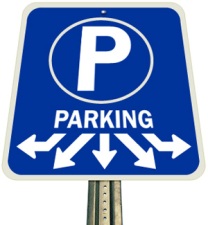 In part one of this series on parking I addressed the question, “What’s it worth?” In part two, I addressed the question, “Should I purchase a property that doesn’t have parking?” In this third part, I’d like to identify some of the different types of parking.
In part one of this series on parking I addressed the question, “What’s it worth?” In part two, I addressed the question, “Should I purchase a property that doesn’t have parking?” In this third part, I’d like to identify some of the different types of parking.
PARKING WITH A CONDO/LOFT
Owned: In a condo/loft, parking is generally either owned or exclusive use. If the space is owned, it’s registered on Title (either within the unit description or as a separate piece of property) and can usually be bought and sold apart from the unit, subject to certain restrictions.
Exclusive Use: If the space is exclusive use, the condo corporation owns the space but grants the unit owner the exclusive right to use. The unit owner has less rights here than if the spaced were owned, as the space cannot be severed and sold as a separate piece of property.
Leasehold: There are some buildings in the city where the parking spaces are retained by the condo corporation and are leased out to the unit owners. For example, I recently helped some clients purchase a condo at 77 Maitland Pl (“Celebrity Place”). The parking spaces here are not owned, but all unit owners have the option of leasing one, at a cost of approx $80.00/month. I helped another couple purchase a condo at 250/260/270 Queens Quay (“Harbour Point”). Parking here is leasehold as well (at a cost of approx $110.00/month), however not every unit owner has the option of leasing a space. Basically, units either have a leasehold space attached to them or they don’t. As a result, the units that have an attached leasehold space are valued higher than the ones that don't.
PARKING WITH A HOUSE
Private Driveway/Garage: For those living in a house the most sought after type of parking is private driveway/garage. It offers the highest level of convenience and generally comes with the fewest encumbrances or restrictions.
Front Pad: This is essentially a compromised version of driveway parking. Access still comes from the street, but the usable space is often much less (usually just enough for one car) and it occupies what would otherwise be part of the front yard. As a result, there tends to be less curb appeal and a more cramped feel than driveway parking. Furthermore, the legality of a front pad parking space can come into question and should be verified prior to making an offer-to-purchase.
Rear Parking Via Laneway: Here, owners access the rear of their property from a common laneway that runs along the rear of the neighbouring properties as well. The parking space may be located in a garage at the rear of the property or on a rear parking pad.
If you're thinking of making a move and would like to know how I can help, feel free to contact me for more info.
